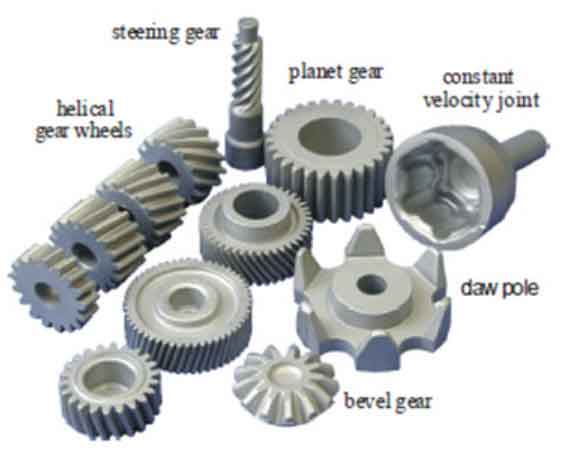Precision forging is a manufacturing process that involves shaping metal using compressive forces to achieve high levels of accuracy and precision. It is commonly used in various industries where accuracy is critical for the performance and functionality of the final product. Here are some applications where precision forging is particularly important:

Aerospace Industry:
Precision forging plays a crucial role in the aerospace sector, where safety and reliability are paramount. Components such as turbine blades, engine shafts, and structural parts require high accuracy to withstand extreme conditions and ensure optimal performance.
Automotive Industry:
Precision forging is extensively used in the automotive sector for producing critical components like connecting rods, crankshafts, gears, and steering knuckles. These components need to meet stringent quality and performance standards to ensure smooth operation and durability of the vehicles.
Defense Industry:
The defense sector relies on precision-forged components for various applications, including military vehicles, artillery, and firearms. Parts like gun barrels, weapon triggers, and gear mechanisms require precise shaping and dimensional accuracy to ensure proper functionality and reliability.
Medical Equipment:
Precision forging finds applications in the manufacturing of medical equipment, particularly for orthopedic implants and surgical instruments. Implants such as hip replacements, knee replacements, and spinal implants demand high precision to ensure proper fit, alignment, and long-term performance within the human body.
Power Generation:
Components used in power generation equipment, such as gas and steam turbines, often undergo precision forging. Turbine blades, rotors, and other critical parts require accurate shaping to optimize energy efficiency and reduce maintenance costs.
Oil and Gas Industry:
Precision-forged components are vital for the oil and gas industry, particularly in exploration, drilling, and extraction operations. Components like drill bits, valves, and wellhead equipment need to withstand high-pressure environments and maintain precise tolerances to ensure efficient and safe operations.
Tool and Die Manufacturing: Precision forging is also utilized in the production of tools and dies used in various manufacturing processes. Molds, dies, punches, and inserts require high accuracy to maintain tight tolerances during mass production and ensure consistent product quality.
In all these applications, precision forging helps achieve superior mechanical properties, dimensional accuracy, and structural integrity, leading to enhanced performance, reliability, and durability of the final products.
